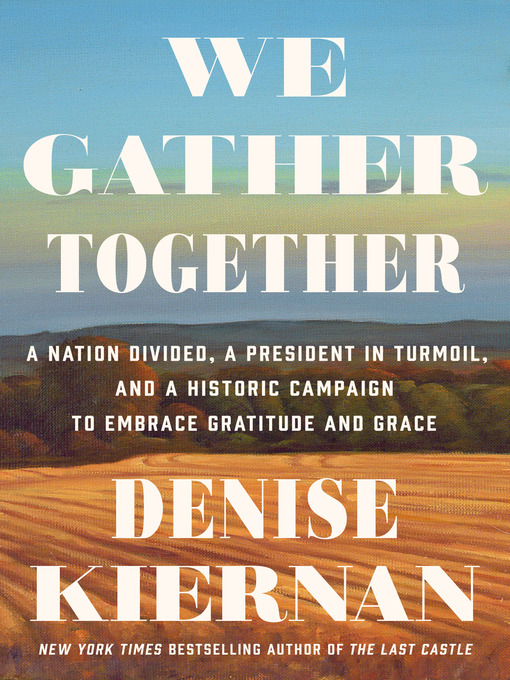
From Ancient Rome through 21st-century America, bestselling author Denise Kiernan brings us a biography of an idea: gratitude, as a compelling human instinct and a global concept, more than just a mere holiday. Spanning centuries, We Gather Together is anchored amid the strife of the Civil War, and driven by the fascinating story of Sarah Josepha Hale, a widowed mother with no formal schooling who became one of the 19th century’s most influential tastemakers and who campaigned for decades to make real an annual day of thanks.
Populated by an enthralling supporting cast of characters including Frederick Douglass, Abraham Lincoln, Sojourner Truth, Walt Whitman, Norman Rockwell, and others, We Gather Together is ultimately a story of tenacity and dedication, an inspiring tale of how imperfect people in challenging times can create powerful legacies.
Working at the helm of one of the most widely read magazines in the nation, Hale published Edgar Allan Poe, Nathaniel Hawthorne, Harriet Beecher Stowe, and others, while introducing American readers to such newfangled concepts as “domestic science,” white wedding gowns, and the Christmas tree. A prolific writer, Hale penned novels, recipe books, essays and more, including the ubiquitous children’s poem, “Mary Had a Little Lamb.” And Hale herself never stopped pushing the leaders of her time, in pursuit of her goal.
The man who finally granted her wish about a national “thanksgiving” was Lincoln, the president of the war-torn nation in which Hale would never have the right to vote.
Illuminating, wildly discussable, part myth-busting, part call to action, We Gather Together is full of unexpected delights and uneasy truths. The stories of indigenous peoples, immigrant communities, women’s rights activists, abolitionists, and more, will inspire readers to rethink and reclaim what it means to give thanks in this day and age. The book’s message of gratitude—especially when embraced during the hardest of times—makes it one to read and share, over and over, at any time of year.
-
Creators
-
Publisher
-
Release date
November 10, 2020 -
Formats
-
Kindle Book
-
OverDrive Read
- ISBN: 9780593183267
-
EPUB ebook
- ISBN: 9780593183267
- File size: 1515 KB
-
-
Accessibility
-
Languages
- English
-
Reviews

Loading
Formats
- Kindle Book
- OverDrive Read
- EPUB ebook
subjects
Languages
- English
Why is availability limited?
×Availability can change throughout the month based on the library's budget. You can still place a hold on the title, and your hold will be automatically filled as soon as the title is available again.
The Kindle Book format for this title is not supported on:
×Read-along ebook
×The OverDrive Read format of this ebook has professional narration that plays while you read in your browser. Learn more here.